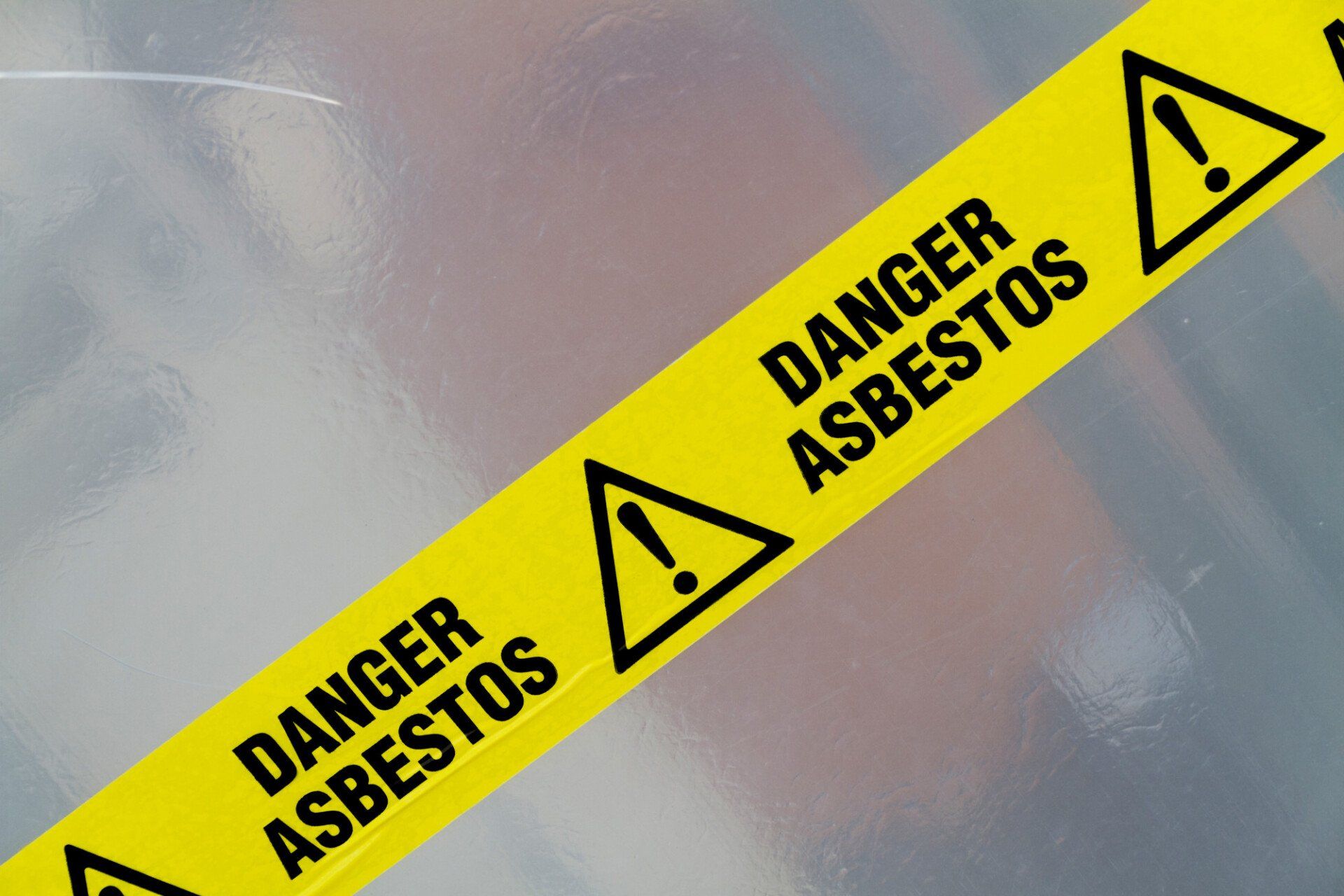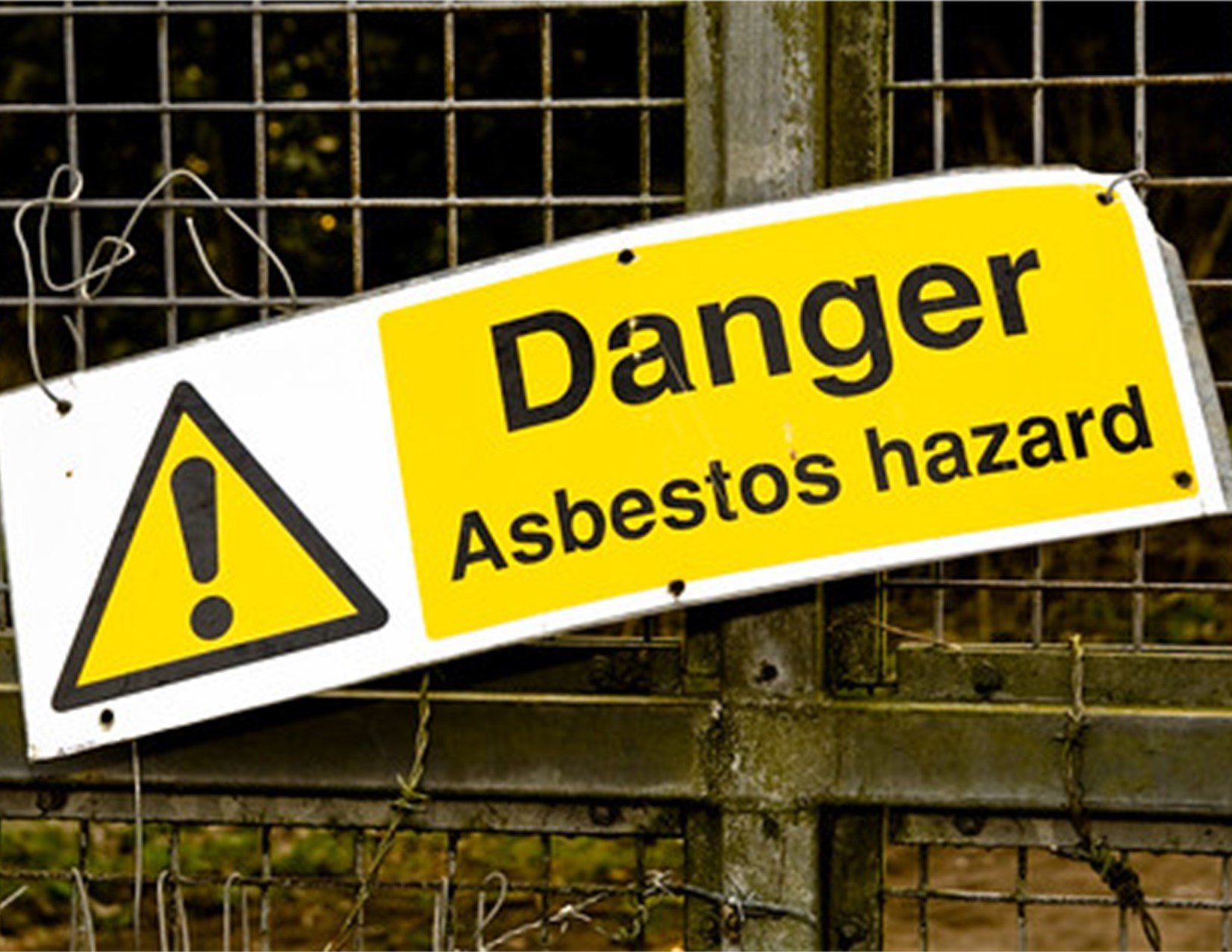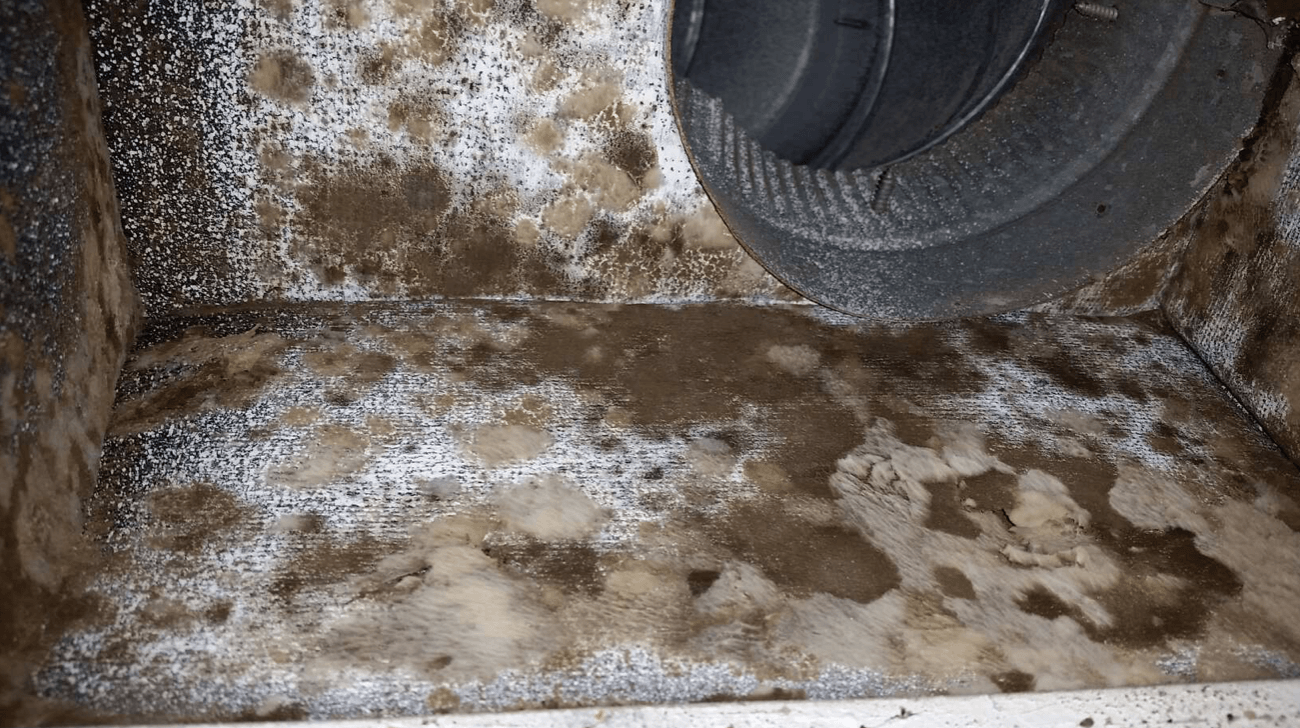Asbestos Inspection
DUSTIN MILLER • June 26, 2019
All You Need to Know About Mesothelioma in Pets

Pets are as sensitive to asbestos as we are, if not more. Seeing as we are their caretakers, it’s crucial for us to make sure that they are able to live in the best environment possible. Asbestos can cause mesothelioma -- a deadly type of lung cancer that progresses very rapidly.
In this article, we’ll talk about how asbestos affects animals and what you can do to prevent your furry friends from being exposed to this harmful substance.
Asbestos Exposure Causes Mesothelioma in Pets
Asbestos is a friable substance that is found naturally as a part of some stones. It has excellent insulative properties, which is the reason why it was commonly used as a construction material back in the 70s through the early 2000s. However, it was later found that asbestos is a highly dangerous substance when it’s broken down, as it will break into microscopic fibres that will get into the respiratory system and wreak havoc. As mentioned, overexposure to asbestos can lead to the development of mesothelioma, both in humans and in animals.
While it’s rare to see cases of animal deaths that are directly linked to asbestos exposure, it is seen from time to time. Therefore, it’s crucial that you take care of your pets and make sure that they have the best environment in which to thrive and be healthy and happy, as they don’t have the tools or capabilities to care for themselves.
How Pets May Be Exposed to Asbestos
Asbestos exposure can occur when you’re not suspecting it, as the fibres are too small to see with the naked eye. When the particles are inhaled, however, it will quickly get into your lungs and start causing damage. Most pets have a much more rapid heart rate than people, which means that they take a lot more breaths in a minute than humans do. For this reason, they will take more asbestos fibres into their lungs, which increases the chances of them developing mesothelioma.
Additionally, some pets may have the habit of breaking down the walls and exposing the asbestos layer inside it. They may also ingest those asbestos blocks, which leads to more issues with their digestive tracts.
Symptoms of Mesothelioma in Pets
The first signs of mesothelioma are frequent dry coughing and a dry nose. These symptoms are indicative of many illnesses, but if your home was built between the year 1970 through 2000, then the potential presence of asbestos is something that you should worry about. If the condition worsens, there may be rapid breathing, shortness of breaths, and abdominal swelling.
This is because the fibres will cause some damage to the lung tissues, making it difficult to breathe. When the exposure persists, the natural cellular regeneration system will become defunct, leading to the cells become mutated and turning into cancer cells.
If you start seeing these symptoms in your pet, you will need to take them to the vet right away. Mesothelioma is an aggressive type of cancer, which means that it doesn’t take long for the condition to take a turn for the worst. It’s imperative that you act quickly to prevent the issue from growing out of proportion.
Diagnosing and Treating Mesothelioma
Mesothelioma can be rather difficult to diagnose as some indications can point to a number of many other different illnesses. Therefore, the vet will examine every possible option from blood testing, urine analysis, and X-rays, to CT scans. They may also take fluid or tissue samples from the lungs in order to examine the progression of cancer.
Sadly, there is no viable treatment for mesothelioma in pets, which means that it’s a terminal disease. Even though chemotherapy can slow down the progress of mesothelioma in dogs, it doesn’t help to cure the condition entirely. Therefore, the vet may prescribe some medications to help deal with the pain and the shortness of breath so that the animal can remain comfortable throughout their remaining time.
You should take them out for a walk and give them a chance to enjoy the fresh air, as that can help to make it easier for them to breathe. Some light exercises are effective at reducing the pain in younger pets, but in older animals, a short walk around the porch may be enough.
As you can see, mesothelioma in pets is a condition that you need to be aware of and it can be prevented if you take the proactive approach to detecting it.
If you’re looking for an asbestos removal service in Calgary, get in touch with us today! We’re
happy to help.

We’re all about “customer first” at Mold Squad. It shows in everything we do, from the way we treat our employees to how we treat our customers. We go above and beyond to make sure our customers are 100% satisfied with their projects, and we always strive to deliver a better service than they expected. It’s because of this dedication to serving others that we’ve been able to build such an amazing community of customers. Our Pledge to Our Customers: We pledge to respect your environment We pledge that you come first at all times We pledge to listen and understand your needs We pledge to build long term relationships based on trust and respect We pledge to supply value pricing We pledge to provide the best products and services available We pledge to provide solutions for today’s and tomorrow’s needs Our Pledge to Quality Service: We pledge to fix it right the first time We pledge to respond at your convenience We pledge customer satisfaction each and every time Our Pledge to our Local Community: We pledge to be involved with making our community a better place to live, work and raise our children We pledge to give of ourselves at all times We have: Full liability insurance Full Workers’ Compensation on all our employees Full bonding on job (if required) We live by our customer's satisfaction, so please don't hesitate to contact us at 403-229-0610 if you have any questions or concerns.

Mold Remediation is a broad term and can include many different processes. The specific details of any project will determine the scope and type of work involved in restoring the building envelope. It is a big job that requires plenty of attention to detail and logistical planning from beginning to end. Your project will inevitably involve some unexpected events. At times, this can be a stressful experience – especially when it comes to meeting deadlines, managing budgets and juggling multiple vendors. We are a trusted professional who specialize in these services, so you won’t have to stress as much about the details of your renovation project. First comes the inspection A mold remediation project begins with an inspection of the building. Inspection is used to identify issues to be addressed as part of the restoration. Issues could be as simple as replacing damaged parts, or as complex as repairing structural damage, and cleaning or removing hazardous substances or debris. The Project Manager will also take photographs of the property so the client can see areas of concern. Depending on the scope of work required, it’s important for the contractor and the client to fully understand the issues so they can be addressed properly and effectively. Underlying causes are identified The causes may be evident to someone who knows what they are looking for, or they may be hidden or difficult to see. In some cases, they may be subtle or difficult to detect. To properly remediate a mold issue, the underlying causes must be identified so they don’t cause additional issues in the future. We apply our vast experience and building technology expertise to identify problems with buildings, figure out why the problem developed to begin with, fix the problem, and then make sure the problem does not happen again. Client provided with a detailed quote Once the issues and underlying causes are identified, the Project Manager will create a detailed quote to address them. This quote is a document that comprises all the materials and costs required to complete the restoration. The Project Manager will provide the client with a copy of the quote. This will give the client a good idea of the cost of the project and when it is expected to be completed. The cost of a full-service building envelope restoration project is based on several factors, including the extent of the damage, the materials required, and the amount of time it will take to complete the work. If required, financing is available Any homeowner can benefit from professional restoration services, but they can also be quite expensive. Restoration services don’t always come at a convenient or expected time. Sometimes, unfortunate events or natural disasters can cause damage and require mold remediation services. Fortunately, remediation service companies like Mold Squad are equipped to provide financing, making the process of restoring your home easier. If you need financing, you should discuss this with your contractor when they provide an estimate of the cost. Together, you can determine the best way to handle financing the project. Problems are solved and failures are fixed Once the work plan has been completed, the Project Manager will make sure all of the issues have been corrected. They will review the work to verify that it has been completed properly. If there are problems, they must be solved. If there are failures, they must be corrected so they won’t re-occur. This is often a time-consuming process, especially when complex issues must be addressed. When problems or failures are found, it is important to take the necessary steps to solve them or the damage may come back and be even more costly to correct in the future. At the same time, it is important to finish the work as quickly as possible to minimize the cost of the project. When all of the issues have been addressed, the project is considered completed. Work is completed on time and on budget All remediation projects have a timeline and budget associated with them. Project timelines are sometimes affected by weather conditions, availability of materials, or other unforeseen events. The Project Manager should anticipate some delays, but they shouldn’t be excessive. When the project has been completed, the Project Manager will submit a final invoice, detailing any changes that were made to the work plan and what caused them. It should also include details about the cost of the project and an itemized list of any additional expenses. If the project was completed on time and within the budget, there should be no additional charges. If there were changes to the work plan, the Project Manager will explain why they occurred. Warranty is provided Our warranty is your assurance that we will correct any problems caused by our work for a period of 5 years after the project has been completed. Keep in mind this warranty only applies: To the property only as long as it remains in the possession of the original owner named above To the construction work that has not been subject to accident, misuse or abuse To the construction work that has not been modified, altered, defaced, or had repairs made or attempted by others That contractor be immediately notified in writing within ten (10) days of first knowledge of defect by owner or his agent That contractor shall be given first opportunity to make any repairs, replacements or corrections to the defective construction at no cost to owner within a reasonable period of time Under no circumstances shall contractor be liable by virtue of this warranty or otherwise for damage to any person or property whatsoever for any special, indirect, secondary or consequential damages of any nature however arising out of the use or inability to use because of the construction defect Conclusion The mold remediation process is a critical one, and it requires meticulous attention to detail. It can be a challenge to get back to normal, but it can be done with the right approach. In order to successfully restore your building, we will need to assess the damage, repair the structural elements, rebuild, and conclude the process. It may sound complicated, but it can be done with the right team. At Mold Squad, we are well-trained to deal with every aspect of a mold remediation project. Give us a call at 403-249-0610.

Asbestos is a naturally occurring mineral that has been used in construction and factory settings for hundreds of years. The properties of asbestos makes it resistant to chemicals, heat, water and electricity, making it an excellent insulator and fire retardant. Add to that, it is malleable and has a binding and strengthening property. As a result, it became a popular building material for a variety of industries. Asbestos is a Dangerous substance But it wasn’t known how harmful it could be. Airborne asbestos fibers are hazardous if inhaled. You put yourself at risk for a number of serious diseases, including asbestosis, mesothelioma and many different forms of cancer. Today, there are strict laws concerning the use of asbestos due to the dangers it poses to both workers and the general public. These asbestos fibers become airborne when asbestos materials are disturbed, damaged or removed incorrectly. Renovating or remodeling a home built before 1990 runs a serious risk of disturbing asbestos. Homes at that time were built with asbestos from floor to ceiling, inside and outside. There are plenty of horror stories out there – just Google it. There are unethical contractors and unsuspecting homeowners – that makes for a bad combination. Both can suffer the cost and effect of asbestos on the job site. How we approach Asbestos Abatement First and foremost, all our employees undergo training through the Institute of Inspection Cleaning and Restoration Certification (IICRC), Applied Microbial Remediation Technician (AMRT) certification. We also meet or exceed all Occupational Health & Safety (OH&S) standards. Air quality tests are run, and the job site is prepared in accordance with establish guidelines. Our workers do not enter the job site without all the necessary Personal Protective Equipment (PPE). Depending on the job, this includes hazmat suits, respirators, and footwear. All of our PPE equipment is inspected, maintained and tested on a regular basis. Following that, all asbestos waste materials are then disposed of properly. It’s important to us to protect our employees, but equally as important to protect your environment. Asbestos abatement is not a DIY project. You need the professionals to do it the right way, with the right equipment. We’re talking about the health of you, your family and your investment. If you suspect asbestos in your home, call us at 403-249-0610 for an estimate. Don’t mess with Asbestos.

You may not give air quality much thought, but it’s directly linked to your overall health. The quality and cleanliness of the air in your home has a significant impact on your respiratory system, overall well-being, and even general stress levels. In an indoor environment that is tightly enclosed, hazardous pollutants can accumulate faster than in a more open setting. Normal activities like cooking, cleaning, burning candles and even just breathing create various types of contaminants that can be harmful to human health if left unmitigated for long periods of time. Arguments over whether or not we are experiencing an increase in unhealthy air quality have been raging for some time now — as they have with so many other environmental issues — but there is no denying that you need to take steps to ensure that the air you breathe at home is healthy. Identifying Air Quality Issues in Your Home There are a few easy ways to identify potential issues with your home’s indoor air quality. One of the most obvious signs that you may have an issue with indoor air quality is an unfamiliar odor. The scent of fried food or lingering smoke from candles might not be familiar to you, but if you can't pinpoint where it's coming from and it's unpleasant, it could be indicative of a problem. This is especially true in the case of cigarette smoke, which lingers for hours after being smoked and can create a variety of respiratory issues when you breathe in the toxic chemicals. Just because you don't notice any weird smells doesn't mean there isn't anything wrong with your home’s air quality. If there are signs that something is amiss — such as a constant feeling of stuffiness or coughing more than usual — then it could be time to get some professional help. Fundamental Actions to Improve Indoor Air Quality The most important step in preparing for an air quality test is to clean up your act. Doing this will go a long way towards improving your indoor air quality. Start by eliminating sources of contamination such as smoking, cooking and burning candles. If you have allergies, reduce the amount of dust or pollen that accumulates in your home, which can irritate allergies and asthma sufferers. You should make sure you are using the correct size filters for the furnace or air conditioner installed in your home. In addition to these environmental actions, you should also make sure you are getting plenty of fresh air outside. Professional Indoor Air Quality Test One way to ensure that you are living in a clean, healthy environment is by getting an indoor air quality test done. This is something that a professional should do as they will have the right equipment and knowledge to adequately assess your situation. The tester will use portable devices and specialized equipment to assess contaminants as well as provide recommendations for how to best improve the indoor environment. Quite Home A ‘Quiet Home’ is required prior to testing as the mold spores are very tiny. When there is excessive dust or other particles in the air, it makes it very difficult to see the mold spores on the lab cassettes. We recommend taking these actions approximately four hours prior to the testing time in that area: · Turn off all forced air furnace fans · Turn off overhead and oscillating fans · Close all windows and doors · Stop any renovations and clear workers · Stop any excessive activity · Clear out any clutter near ventilation points What happens during an air quality test The process typically starts with a walk-through inspection that includes taking various readings with specific instruments, such as a carbon monoxide detector, a CO2 sensor, an indoor air quality monitor and an infrared camera. While these devices won’t tell you everything about the health of your home’s air, they will give you a good overview of where issues may lie, and which rooms might need attention. At this point, your inspector can provide recommendations for what steps to take next. Whatever it is that needs to be done in your home, it’s best if it is done as soon as possible before the situation gets worse. Conclusion We are spending more time indoors. It’s more important than ever to be aware of the quality of air in your home. In a study conducted by the World Health Organization, it was found that indoor air pollution can be two to five times higher than outdoor levels. There are a number of air quality tests you can take on your own, including the CO2 monitor and the dust monitor, but these can only give you a general idea of your home’s air quality. A professional indoor air quality test will give you a more detailed picture of what pollutants are present in your home and in what quantities. Do you need help with an air quality test? Give Mold Squad a call at 403-249-0610.

Everybody’s doing it. DIY projects are prevalent, with homeowners knocking down ceilings and walls, tearing out tiles and old pipes. But in an effort to spruce up their older home, they may be, unknowingly, contaminating their environment with asbestos fibers. Renovations can expose asbestos to the air, which can cause it to become airborne and cause health problems if it’s inhaled. What year was your house built? The year 1990 is the line in the sand. Homes built before then run a serious risk of asbestos materials being used in the building, from floor to ceiling, inside and outside. But where? Literally, everywhere. Vermiculite and Batt Insulation Textured Paint Floor Tiles Popcorn Ceilings Drywall Duct Lining Recessed Lighting Wiring Insulation Main Panel, Fuse Boxes Outlets, Sockets, Switchboxes Ceiling Tiles Duct tape Joint Compounds Cement Roof Felt and Shingles Deck Under Sheeting Board and Composite Siding Window Putty and Caulking Pipe Insulation Appliance insulation Spray-on Insulation Gaskets to name a few. If you suspect asbestos in your home, don’t mess with it! Asbestos is a Dangerous substance Airborne asbestos fibers are hazardous if inhaled. You put yourself at risk for a number of serious diseases, including asbestosis, mesothelioma and many different forms of cancer. These asbestos fibers become airborne when asbestos materials are disturbed, damaged or removed incorrectly. DON’T Don’t saw, sand, scrape, drill or disturb materials that may contain asbestos Don’t sweep, vacuum or dust debris that may contain asbestos Don’t collect asbestos samples for testing without proper training Don’t perform any work on or near asbestos materials unless you’re trained and certified Don’t dispose of asbestos materials with normal household waste Asbestos Abatement is not a DIY project Not only is asbestos dangerous, but it is also very difficult to remove. It has to be done in a controlled environment and by someone who knows what they are doing. You need the professionals to do it the right way, with the right equipment. We’re talking about the health of you, your family and your investment. If you suspect asbestos in your home, call us at 403-249-0610 for an estimate. Don’t mess with Asbestos.

At Mold Squad, we don’t only remediate mold and asbestos, we also specialize in leak detection and building envelope solutions. Using thermal imaging we can easily and quickly locate anomalies and water ingress. Effective root cause analysis. Moisture helps create the ideal conditions for mold growth. Contact us today if you’re experiencing water issues with your home or building.

Asbestos is found in some building materials in Canada including insulation, flooring, textured paint, ceiling and roof tiles. Exposure to asbestos can cause serious illnesses like cancer including mesothelioma and asbestosis. If you suspect there is asbestos material in your property do not hesitate to contact us. Homes built before the 1980s have a higher chance of containing asbestos in various building materials. It is crucial to have your materials tested before beginning the renovations process to avoid exposure. Here at Mold Squad not only do we carry out asbestos testing but also the abatement process. We are fully certified and ready to remove all types of asbestos for both residential and commercial.

A brand new appliance looks absolutely bright, shiny, and clean when first bought. Not only does it look appealing, but it is also highly functional. Whether it’s a refrigerator, washing machine or dishwasher, it can be exciting and highly efficient to work with a newly bought appliance. Over time, however, the chances are that an appliance starts to attract molds. If left unattended, mold can grow exponentially, making the appliance look unsightly and compromising its efficiency. What’s worse? Exposure to mold growth when using this appliance can also lead to health issues among family members. That said, keeping your appliance clean and mold-free is imperative. Below are top appliances used at home and are prone to molds. Keep on reading to get some top tips on how to prevent these appliances from getting molds. 1. Refrigerator The refrigerator can be the perfect mold hub due to old stored food and moisture. However, it shouldn’t be neglected as your food and water might get contaminated. Keeping your fridge clean is paramount, so it should get maintained regularly. Here’s what you can do: ● Make sure to clean any spills or small pieces of food immediately. ● Remove all trays, drawers, egg containers, butter compartments, and scrub everything once a month using either hydrogen peroxide or vinegar. ● Brush your fridge to clean out the door creases using a toothbrush or small scrub. ● Keep the trays, compartments, and shelves dry before closing the doors. 2. Washing machine The next on the list is the washing machine, which is susceptible to mold exposure and growth. The laundry room is a breeding ground for mold brought by the moisture and pile of dirty clothes left in the damp room. For this reason, your washing machine can easily be invaded with mold. Here’s what you need to do for cleaning and maintenance: ● Do laundry regularly. Never let your dirty clothes sit on the floor or in a hamper for days. ● Make sure to dry your clothes right away after washing them. ● Don’t forget to keep the lid or door of a washer open after washing to let them dry out. ● Clean your washing machine regularly by following the owner’s manual. 3. Dishwasher The last one on the list is the dishwasher, which is another ideal home for mold. It has creases, compartments, and corners that moisture and food can hide. As a result, molds can live and thrive over time. Without cleaning the dishwasher routinely, your dishwasher can be severely impacted. ● Make sure to rinse dishes before loading them in the dishwasher. ● Leave the dishwasher’s door open until it dries completely before closing. ● Run the heat-dry function to kill any bacteria inside of the dishwasher weekly. ● Remove and clean the silverware baskets after each wash. Last Notes Mold growth on your household appliances can pose a potential threat. Not only does it impact the appliances’ aesthetics and efficiency, but it can also affect the health of the whole family. Follow the valuable tips mentioned above to ensure your household appliances are free from mold infestation. If it may have gotten worse, then you might need to contact experts to deal with it. If you’re looking for a professional mold removal service in Calgary, get in touch with us today! We’re happy to help.

Mold is one of many things homeowners do not want to find growing in their homes. Once it is found, action has to be taken to get rid of it. With that said, why does mold even grow at homes in the first place? What are the factors that contribute to their growth, and what does it take for a homeowner to get rid of them? Here's all you need to know about molds—how they grow and what you should do to get rid of them: The Problem with Mold If you've never dealt with mold before, you might be wondering what can be so bad about it. First things first, mold looks disgusting, making any building they're growing in look dirty and uncared for. This is the last thing any homeowner or business owner wants anyone to think about their property. Moreover, mold isn't only a visual problem. Mold can fill the air with spores that can deteriorate any individual's health if exposed to it for long. They are especially detrimental to those who do not have a strong immune system. How Mold Grows Mold is an organism that is present in almost any condition and anywhere. However, what sparks its growth is if its conditions are met, which is a cool, dark, moist area complete with its food source, which can be any item with plenty of cellulose such as plywood. When that happens, mold will start growing, producing spores that fill the air and float to other areas of the home, possibly growing molds in different places as well. In that sense, you might think that once you discover mold, getting rid of its food source, or making sure no moisture is present will kill them off. However, that isn't true, as the mold will just lay dormant until conditions are once again met. Even if you've rid the area off of moisture, the humidity of your home might be enough to keep them growing, leaving you with a problem unsolved. Getting Rid of Molds Remember, merely cutting off the moisture or food source is not going to get rid of the molds. You will need to use chemicals, such as sprays to kill them, and even then, it still is not enough. Once they've been thoroughly sprayed, you have to get your hands dirty and get rid of them completely. If you do not thoroughly clean out every bit of mold, they're going to come right back, thriving inside your home. Because of that, most homeowners opt for professionals who have plenty of experience and skill to get rid of mold for good appropriately. In conclusion, if you're dealing with mold growth at your home, hire a professional. They'll carry out the necessary procedures to get rid of them entirely, and give you tips on how you can keep your home mold-free. Don't worry about the cost, as you'll save plenty of money for not having to visit the doctor because of the "cold" you're always dealing with. If you’re looking for a professional mold removal service in Calgary, get in touch with us today! We’re happy to help.


